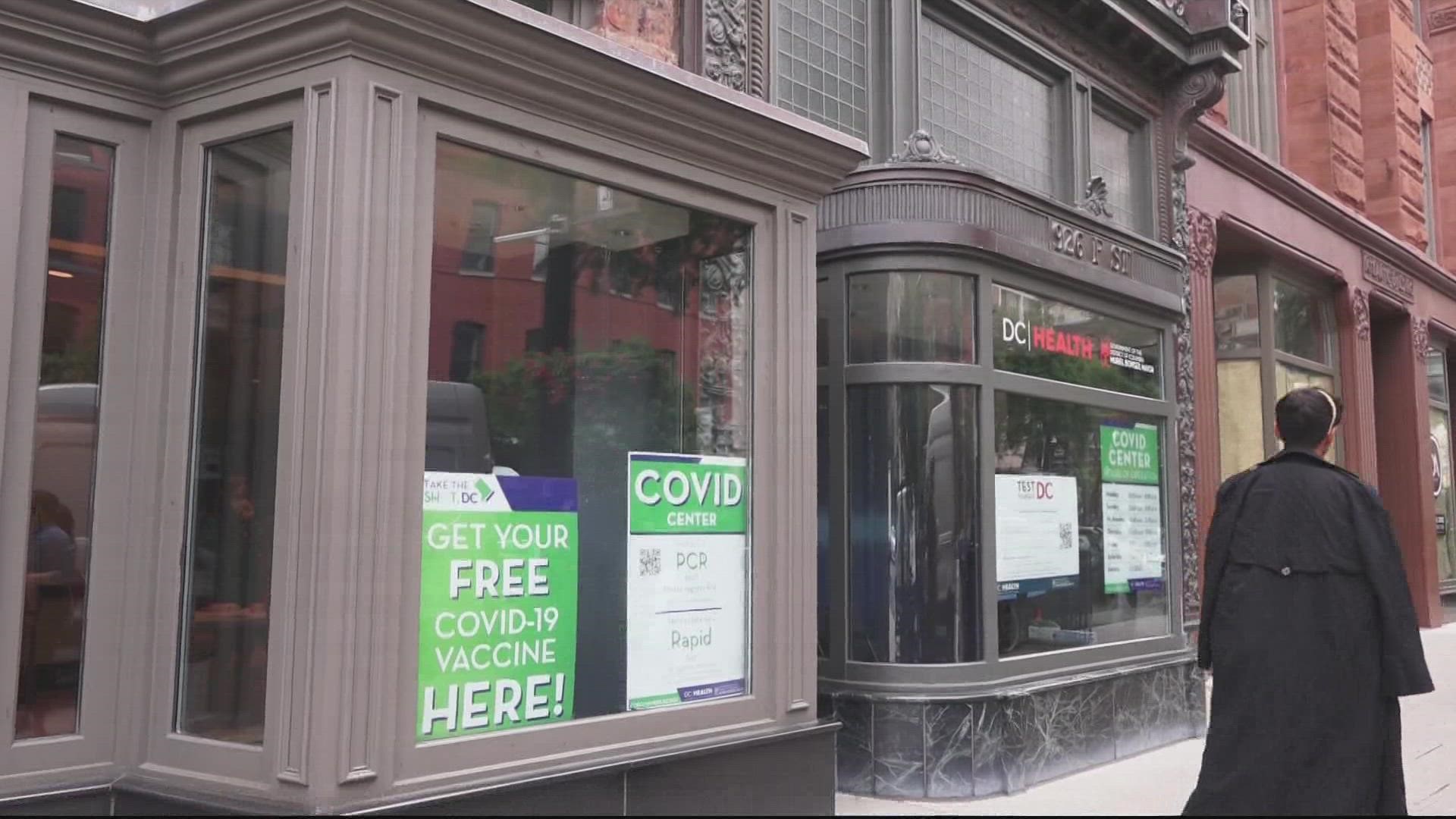WASHINGTON — As we move into another season of learning to live with the pandemic, updated boosters are another tool to help fight COVID-19’s spread.
Before you roll up your sleeve, you might have some questions — so we’re Verifying the answers.
THE SOURCES
- The Food and Drug Administration
- The Centers for Disease Control & Prevention’s latest guidance
- Dr. Stuart Ray of Johns Hopkins Medicine
WHAT WE FOUND
Remember hearing about people being fully vaccinated and boosted, but still getting sick with COVID-19? Maybe it happened to you?
The Omicron variant is largely to blame, a variety of the coronavirus that more easily evades initial vaccines. So, the CDC’s approved a new shot, referred to as an “updated booster” or “bivalent booster," that is more specifically targeted at this variant as well.
Who can get an additional booster?
The CDC recommends an updated shot for those 12 and up.
Moderna’s bivalent booster is approved for those age 18 and up, Pfizer’s for those 12 and up.
What if you’ve never gotten COVID-19 shots before?
The bivalent booster is meant, for now, to work with the initial COVID-19 vaccine series, so get those first.
“So the current authorization for these violent vaccines is only for boosting," said Dr. Stuart Ray of Johns Hopkins Medicine. "I think part of the issue there is that we just don't have the initial vaccination data set to yet demonstrate that these would be at least equivalent to the original. I think the sense is, they probably would be, but that's not the current authorization."
However, this new shot replaces the earlier boosters, so even if you didn’t get a follow-up third or fourth shot before, then this is the booster for you.
When is a good time to get the shot?
It’s FDA approved if it’s been at least two months since your most recent COVID-19 vaccine– your primary vaccine series or an earlier booster shot.
Dr. Ray says it’s hard to predict if or when another surge could come, and everyone’s personal timeline could look a little different, too.
“I don't think any of us can be sure when our max risk is going to be; my general suggestion is if you're thinking you should get it, then you should probably get it," said Dr. Ray. "The immune system is so variable from person to person. Some people have organ transplants, their considerations are different. Some people have HIV, pregnancy, there's so many ways that you have to weigh considerations. And I think a big part of it is listen to the general recommendations, and then talk to your clinician if you have specific questions."
Right now, the CDC recommends delaying a COVID-19 vaccine until 4 weeks after a monkeypox shot. There is no recommended waiting period for the flu shot.
What’s the guidance if you’ve had COVID-19?
The CDC’s recommendations focus mostly on timing of your last shot, but do say “at a minimum, defer any COVID-19 vaccination, including bivalent booster vaccination, at least until recovery from the acute illness” and you’re not longer isolating.
You may consider giving it 3 months’ time between infection and injection, the CDC adds – which Dr. Ray says could help make the most of the shot.
“There's some research showing that if you don't wait 90 days, then your response to the vaccine may be somewhat blunted," said Dr. Ray. "You have good protection from a recent infection. And so that should be mitigating risks."
Sign up for the Get Up DC newsletter: Your forecast. Your commute. Your news.
Sign up for the Capitol Breach email newsletter, delivering the latest breaking news and a roundup of the investigation into the Capitol Riots on January 6, 2021.

